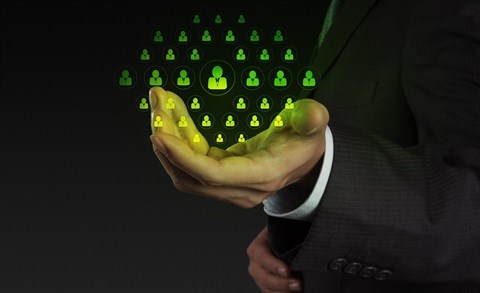Is customer self-service worthwhile?
And then suddenly passengers were able to check in online and even using smartphones 24 hours before the flight, and all that stress just melted away. (Unless, of course, the airline's website isn't working too well.) Welcome to the age of customer self-service.
The topic about customer self-service is controversy-laden, and often polarises business people. On the one hand, it can be a splendid idea, and certainly helps companies save a bit of money through efficiencies; but there are also many customers that don't care for it too much, and, in fact, it rather irritates them. I'd like to try to sift out the good from the bad so that your business can ensure that you succeed.

Is self-service the panacea for customer service? There is no doubt that there is a place for it in today's world of business, especially with items that are difficult, inconvenient, or time-consuming to buy in a typical retailer. ATMs and online or telephone banking make it easier to deal with the banks, (until one actually tries to speak to a real human being.) Many supermarkets overseas have already introduced self-service tills at checkouts, where customers scan their own items, pack their own bags, and then pay what is asked using credit/debit cards or even cash. It seems to work quite well for many, but when I was last in London, I suspected that I would embarrass myself and cause delays for other customers, and avoided these tills. (It seemed that about a quarter of the customers felt the same, judging by the queues at the slower manned tills.)
But what about when it comes to self-service on the internet? Global consumers are becoming more tech-savvy, and comfortable with using technology for service. Websites, like ATMs, do offer a 24/7/365 convenience, and can also save one time when you don't have to wait for someone to answer the telephone.
Nevertheless, Amazon.com, TripAdvisor and other similar websites are phenomenally successful, and they certainly save us a ton of time when we can avoid going into crowded malls. To add value for you, prices are often more favourable, you get the choice of "new or used," they recognise you when you enter, and make numerous suggestions based on your past purchases and interests-profile. In many cases you can even browse through what you are buying, and see what other people have said about the products.
Booking for special events is another area of (mostly) success. Whether it is a movie, a live show or concert, a sporting event, or even a popular restaurant, making reservations has become a lot easier than camping on the pavement outside a ticket office at a venue.
Customers want their questions to be easily answered on their favourite brands' websites, which, in most cases, simply doesn't happen. More than 40% of customers surveyed (by Coleman-Parkes for AMDOC in the UK) said that they had to call a call centre to get answers to basic questions, and 91% said that it was only convenient if they could customise queries for their needs. The most common word used is "effortlessness."
Here are some questions you need to ask before you embark on a self-service strategy for your customers, or you can use this as a checklist to see if your system works for them:
- • Does it truly add value for customers, and create specific benefits for them? Or did we do it just to save the company money or alleviate workloads on staff? If it doesn't bring something useful to customers, don't do it.
• Is it simple to use and intuitive? It really doesn't help if customers have to try and figure things out, no matter how intelligent or stupid they are. How many times have you tried to buy something on a website only to be confronted with a message that the transaction has "timed out" or the page has "expired" because you took too long?
• Is it personalised? The power of Amazon.com, TripAdvisor, YuppieChef and many others is that I am greeted by name as soon as I enter, and they give me evidence that they know something about me and my preferences. Those words, "Welcome back, Aki," make a big difference.
• Related to this, does your software and hardware work? Are the basic systems and processes able to handle all eventualities?
• There is also a need for consistency and simplicity. Most tech-savvy customers and web users are exposed to many websites every day, and can easily compare those that they like with those that they will avoid. Those that are most avoided are those which appear to be complex, and give or ask for too much information.
• Is the self-service option readily available to customers when they need it? It's infuriating when you want to self-check-in on an airline's website, or buy tickets for a movie or rock concert, and it doesn't let you do so.
• Therefore, what credible alternatives are there for customers who cannot or will not use self-service?
• Is the system fool-proof? It's all very well to have a list of FAQs, (frequently asked questions,) but what if my specific question isn't there? One company has a set of digital recordings in its call centre that explain things to customers that are repetitive and time-consuming to agents. Once the agent hears your query, they tell you they will put you through to the recording, and that you can come back to them whenever you are ready during or after the recording.
• Websites and FAQs (frequently asked questions,) need to be regularly reviewed and changed to reflect what customers actually want, and the words that they use. It is often true that the website remains static for years.
• Is your product or service conducive to self-service? Using Amazon.com is useful, but I also love spending hours browsing in a bookshop.
• Another non-negotiable is to offer customers specific responses so that they are left in no uncertainty about communication. For example, how often does your company respond to "Contact Us" emails? Is there an option for someone to call back the customer immediately - or as soon as possible?
• Depending on which survey one looks at, the drop-out rate for customers before checking out their trolley can be as high as 90%. The main reason? A sudden fear that maybe there will be some remorse with the purchase, and a fear that their money will "disappear" or they will be defrauded. Obviously, trust plays a vital role, and you will need to offer guarantees. How do you build their trust? How can you respond so that they know it's all going to be okay? What guarantees can you offer them to ensure they feel safe with you?
• Is your self-service option "polite"? Is there some way in which you thank customers for using this option, and show gratitude for their business? I know that when I walked out of Tesco's self-service, (after plucking up the courage to try it out,) there was nobody there to close the transaction, to say "Thank-you," or "Please call again," and to make me want to repeat the impersonal relationship.
So, while there are lots of companies that will not benefit from a customer self-service option, it must be remembered that it is a strategy that can help customers feel empowered even as they get the benefits of convenience, and of time and money saved. In many cases, the fact that they can do something themselves without relying on or asking someone else to do so is something that they may like.
Do your homework on self-service, and it can lead to great benefits for both you and your customers.





























